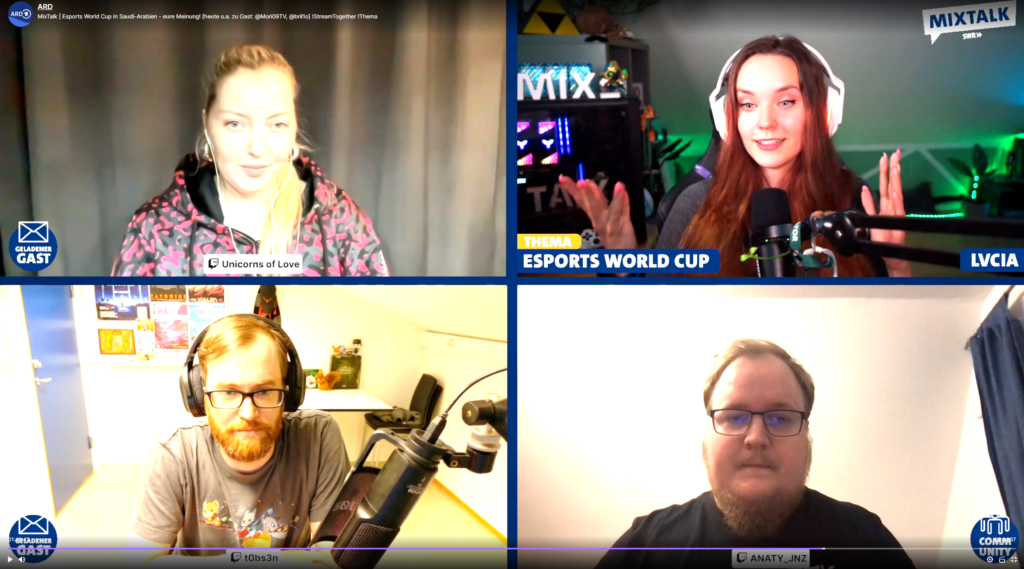
Yesterday, Tobias Scholz participated in the ARD MixTalk (in German) with Vivien Mallant, Maurice Lange, Benedikt Wenck, and bril1o, which was hosted by Lvcia. We delved into the current state of esports, with a particular focus on Saudi Arabia’s influence. Here is the VOD.
During our two-hour discussion, we explored several critical issues that led to this development:
- The consolidation of esports power in Saudi Arabia (and China with Tencent) and the underlying reasons.
- The unsustainable business models of esports organizations are heavily reliant on sponsorships that are vulnerable to economic downturns.
- The lack of infrastructure and government support in Europe to foster a sustainable grassroots esports scene.
Publishers treat esports as merely a marketing tool, with no incentives to create a long-term environment. This is not a critique, but they are optimizing their business model in the current market. - The absence of effective and enforceable platform regulations in Europe.
These factors contribute to esports’ vulnerability, allowing countries like Saudi Arabia to sweep the market. It’s also noteworthy that Saudi Arabia’s strategy targets not just the Western world but also its own youth and emerging markets in Africa and Latin America, where Western moral superiority is less influential because of colonialism.
These developments underscore the urgent need to build a sustainable grassroots esports ecosystem. We must focus on the people who use esports for fun, connection, and learning. As this was a German-focused talk, this means esports needs non-profit status, and it needs official funding by the states to achieve that. Denying that status will always make esports capitalistic and for-profit and, by that, vulnerable to anybody throwing money at it (be it betting agencies, be it crypto-bros, and so on).
